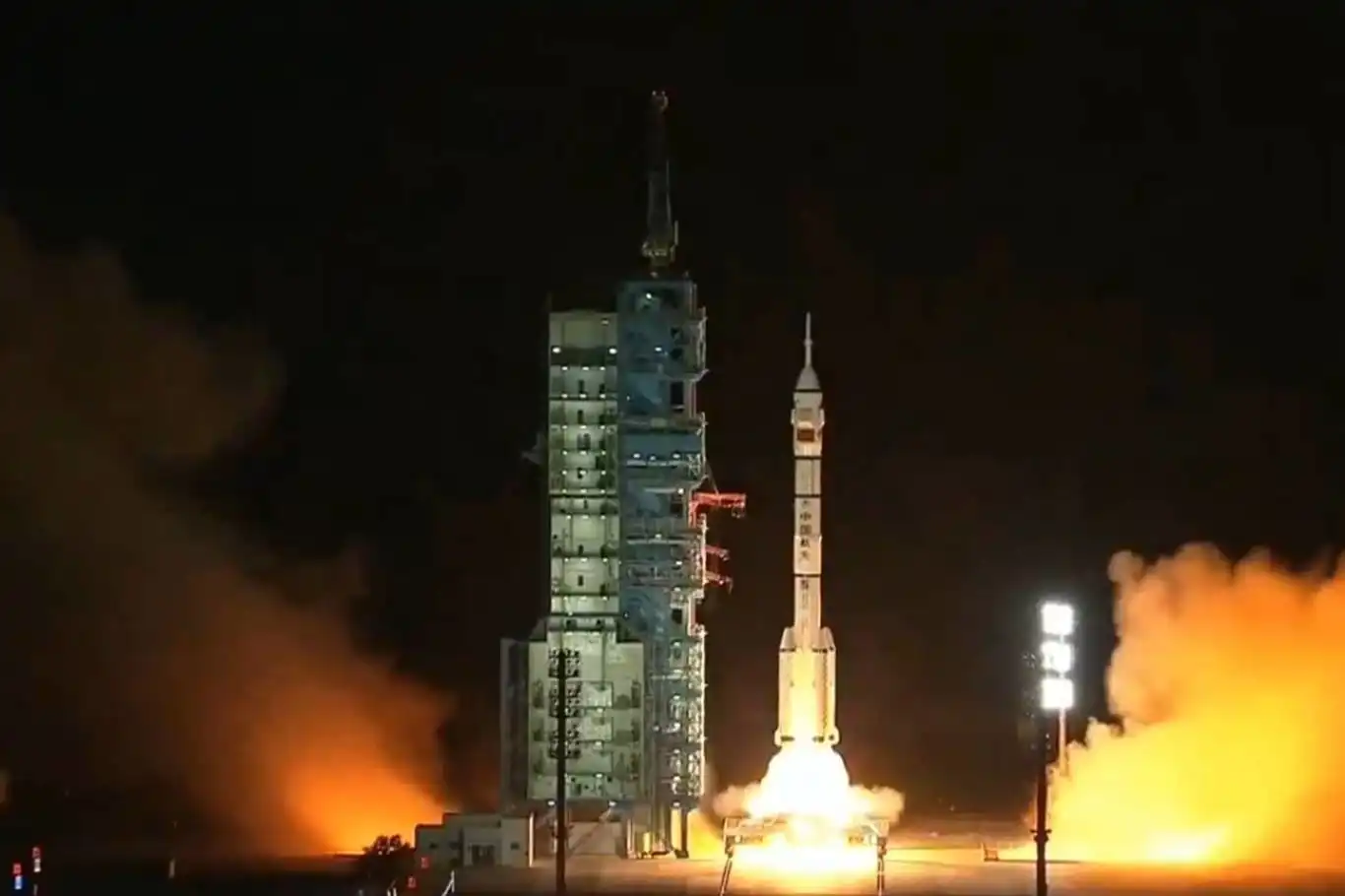China launches Shenzhou-19 crew mission to space station


China successfully launched the Shenzhou-19 spacecraft aboard a CZ-2F/G (Chang Zheng-2F/G) carrier rocket on its mission to the Chinese orbital station.
The rocket, measuring 58 meters in length, is capable of carrying up to 8.6 tons of cargo into low Earth orbit.
The Shenzhou-19 crew is led by Senior Colonel Cai Xuzhe of the People’s Liberation Army Ground Forces, who previously spent six months aboard the Chinese orbital station in 2022. Joining him are Lieutenant Colonel Song Lingdong and female astronaut Wang Haoze, both making their inaugural journey to near-Earth space. The crew is scheduled to return to Earth in late April or early May 2025.
According to Lin Siqiang, Deputy Director of the China Manned Space Agency, the crew will conduct a range of scientific experiments during their mission, encompassing biology, microgravity physics, materials science, medicine, and space technology. A total of 86 studies are planned for this mission.
The Chinese space station, located approximately 400 kilometers above Earth, is expected to operate for more than a decade, contributing to advancements in various fields of research and technology. (ILKHA)
LEGAL WARNING: All rights of the published news, photos and videos are reserved by İlke Haber Ajansı Basın Yayın San. Trade A.Ş. Under no circumstances can all or part of the news, photos and videos be used without a written contract or subscription.
The popular messaging platform Signal is currently experiencing a significant service disruption, preventing users from sending or receiving messages.
Pakistan marked a historic milestone in its space program with the successful launch of its first hyperspectral satellite, HS-1, from the Jiuquan Satellite Launch Centre in northwestern China on Sunday.
In a move that underscores growing global concern over the impact of artificial intelligence on young users, Meta has announced the rollout of enhanced parental control features for its AI-powered chatbots, including the widely used Meta AI Chatbot.
OpenAI has officially transformed ChatGPT into a platform for third-party apps, embedding interactive applications directly within conversations.